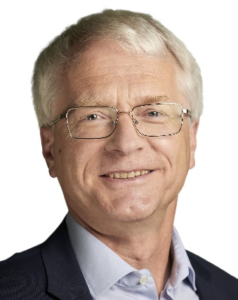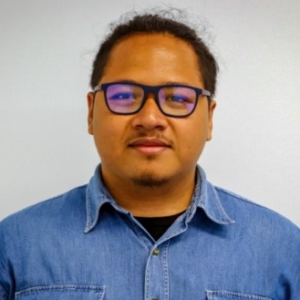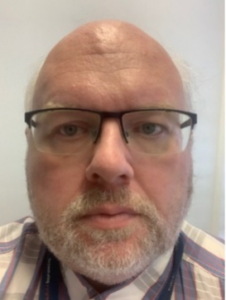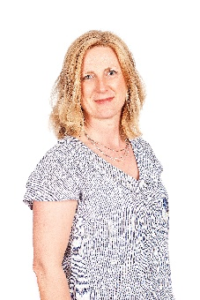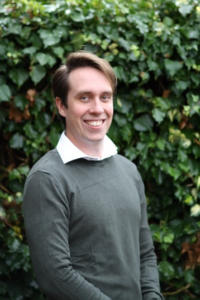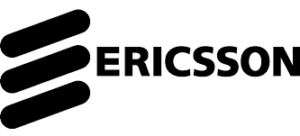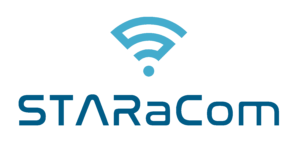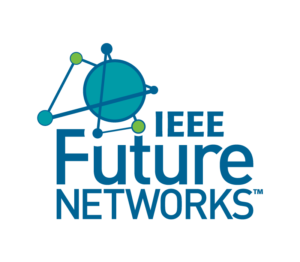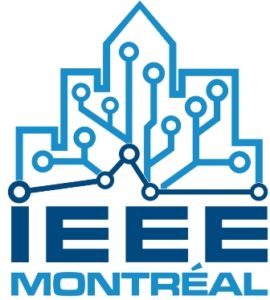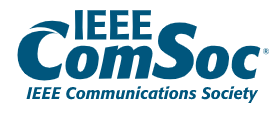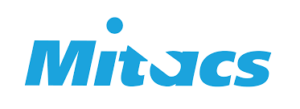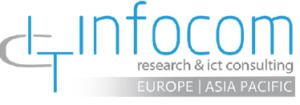14 October 2022 // Hybrid
WORKSHOP CO-CHAIRS
- Meng Lu, Peek Traffic B.V., The Netherlands, meng.lu@wklm.eu
- Latif Ladid, University of Luxemburg, latif.ladid@uni.lu
SESSION OUTLINE
WS1a: 14 October 2022 // 11:00 – 12:30 // Hybrid
- 11:00-11:10 Opening, by Dr. Meng Lu, SWARCO Peek Traffic, The Netherlands; Prof. Latif Ladid, University of Luxemburg, Luxemburg
- 11:10-11:30 “5G for automotive: status and challenges”, by Dr. Uwe Puetzschler, Nokia, Germany
- 11:30-11:50 “5G for Cooperative, Connected and Automated Mobility (CCAM): The Case of Improving Road Safety”, by “Dr. Tiia Ojanperä, VTT Technical Research Centre of Finland Ltd., Finland
- 11:50-12:10 Outdoor-to-Indoor Performance Analysis of a Commercial Deployment of 5G mmWave”, by Muhammad Iqbal Rochman; Vanlin Sathya; Monisha Ghosh Muhammad Iqbal Rochman and Vanlin Sathya (University of Chicago, USA); Monisha Ghosh (University of Notre Dame, USA) (Paper ID 1570830383)
- 12:10-12:30 “3GPP Standardization: From 3G to 6G”, by Hans van der Veen, NEC Laboratories Europe GmbH, Germany
WS1b: 14 October 2022 // 14:00 – 15:30 // Hybrid
- 14:00-14:20 “Our journey toward 5G and beyond ecosystems and business models: learnings and recommended approaches”, by Dr. Hanne Kristine Hallingby, Telenor, Norway
- 14:20-14:40 “5G Verticals, the experience from 5G-SOLUTIONS” , by Dr. Andrea Di Giglio, Telecomitalia, Italy
- 14:40-15:00 “Pre-hospital Triage Improvement for Ambulances via 5G Video and Vital Data Communication”, by Haibin Zhang and Yohan Toh (TNO, The Netherlands); Iñaki Martin Soroa (ISISPACE, The Netherlands); Donal Morris (RedZinc, Ireland); Marie-Pauline Roukens (Vie Curi Medical Centre & Ambulancezorg Groningen, The Netherlands) (Paper ID 1570811067)
- 15:00-15:20 “Validating 5G Stand-Alone slicing advantages through a real life mobility scenario”, by Bastiaan Wissingh, Daan Ravesteijn and Ramon S. Schwartz (TNO, The Netherlands) (Paper ID 1570833851)
- 15:20-15:30 Discussions and wrap-up, by Prof. Latif Ladid, University of Luxemburg, Luxemburg; Dr. Meng Lu, SWARCO Peek Traffic, The Netherlands
SCOPE
Commercial rollout of 5G systems was expected in 2020. While the 5G standard is in place, the gap to bring 5G into business remains huge. Currently 5G trials have been conducted intensively around the World. 5G aims to natively support enhanced mobile broadband (eMBB), massive machine type communication (mMTC) and ultra-reliable low latency communication (URLLC) services in a single infrastructure. It brings enormous opportunities for many vertical sectors, such as, automobile, industry automation, media, and health, just to list a few, to expand and renew their business, or make it more efficient. To allow the coexistence of services with a very different nature, 5G has introduced innovations from spectrum access, air interface, system architecture, network function virtualization in radio and core network, end-to-end network slicing, security, privacy, service orchestration etc. All new 5G features and functions need to be extensively verified and optimized before the commercial rollout of 5G networks. It is essential to test 5G features in complex deployed environments, identifying and solving coverage, interoperability, compatibility and service provisioning problems, and to ensure that 5G can meet the requirements of the various vertical sectors. In particular, the support to vertical sector services will need new measurement and test methods. Due to the complexity of 5G systems, many practical and theoretical challenges will need to be verified and solved during 5G trials.
TOPICS OF INTEREST
The workshop aims at providing a forum for industry and academics to disseminate new findings on 5G trials in vertical industries, and new business development. The workshop will call for papers presenting test results from trials as well as theoretical results based on realistic deployment schemes and new 5G business models. The target topics of the workshop include, but are not limited to:
5G research in multiple vertical industries
- Healthcare
- Energy
- Aquaculture
- Automotive / Transport
- Logistics
- Other sectors
Spectrum
- 5G spectrum evaluation
- Spectrum sharing
- 5G trial development
- 5G trial cases and results
- 5G testbed implementation
- New test technologies
Verticals and new services
- C-V2X
- Applications of mMTC
- Applications of URLLC
- New/innovative services enabled by 5G
Measurement and evaluation
- 5G new radio
- Radio access network
- Core network
- Backhaul
- Fronthaul
- NFV/SDN implementation
- Network slicing
- D2D communications
- Mobile edge computing
- Test result analysis
Network deployment and optimization
- 5G network planning
- Network deployment optimization
- End-to-end performance optimization
Security and privacy aspects
- 5G/6G business model evaluation
- 5G/6G (pre-)standards and implementation
SHORT BIOS
Meng Lu, Strategic Innovation Manager at SWARCO PEEK, The Netherlands; ISO/TC 204 and CEN/TC 278 – NEN (NL) Expert; Member, Board of Governors, IEEE Intelligent Transportation Systems Society; Co-Chair, Industry Engagement, IEEE Future Networks. Previously Programme Manager at Dutch Institute of Advanced Logistics (NL); Visiting Professor at the National Laboratory for Automotive Safety and Energy, Tsinghua University (CN). Since 2002 active in ICT-based transport systems, logistics and energy assessment. Participation in European initiatives and projects since 2005, as Coordinator, WP Leader and/or Partner. Education: PhD at LTH, Lund University, Sweden; Master’s title and degree of Engineering in The Netherlands and P.R. China.
Latif Ladid is the Founder and current President of the IPv6 Forum, and Board member of 3GPP since 1999. He is also the chairman of the 5G World Alliance, Chairman of following technical Committees: IEEE COMSOC IoT subCommittee, IEEE COMSOC 5G subCommit, and ETSI IPv6 ISG (including 5G). He is Co-Chair of IEEE COMSOC SDN-NFV subCommittee. Latif Ladid is a member of the UN Strategy Council, a Member of the present EU Future Internet Forum, representing the Luxembourg Government. He sits on the IPv6 Ready Logo Program Board. He is Program Coordinator at the University of Luxembourg, contributing to several EC funded projects on next Generation technologies. Mr. Ladid brings the Consortium extensive skills regarding IPv6 state-of-the-art insight and field deployment experience, notably the creation of the IPv6 Forum based in Luxembourg and the initiation of strategic IST research projects focused on the exploitation of IPv6 that add substantial value to the European industry at large.
Uwe Puetzschler – Head of Automotive & Mobility Solutions at Nokia. In addition to his position at Nokia Uwe is Vice-Chair of the 5GAA Board. He joined Siemens in 1990 and held a number of positions in Operations Support System (OSS) research and development before moving to the UK where he assumed a management role in the sales organization for 5 years. After returning from the UK and prior to his current position, he ran a business line in the global service organisation He also started Nokia’s V2X activities in Nokia Mobile Networks.Uwe holds a Ph.D. in computer science.
Tiia Ojanperä currently leads the Autonomous Systems Connectivity research team at VTT Technical Research Centre of Finland Ltd. Her team is developing smart and reliable connectivity solutions for automated and remote controlled systems, including vehicles, ships, and drones. In addition, she is the Finnish consortium’s coordinator and VTT’s project manager in the Celtic-Next 5G-SAFE-Plus project. The project is developing and piloting novel 5G-enabled services to improve road safety in collaboration with Finnish and international partners from the academia and industry.
Muhammad Iqbal Rochman received his BE in Informatics Engineering from Sepuluh Nopember Institute of Technology, Indonesia in 2012, and and his MS degree in Computer Ccience from National Taiwan University of Science and Technology, Taiwan in 2016. He is currently a PhD student in Computer Science at the University of Chicago, USA, where he is studying the coexistence between multiple Radio Access Technologies in licensed and unlicensed spectrum, both in real-time test-bed and simulation framework.
Hans van der Veen graduated from Technical University of Twente (NL) in 1992. His involvement in 3GPP standardization started while at Ericsson in 1999. After 3-year stints as Secretary of 3GPP TSG RAN plenary and 3GPP TSG RAN WG2 at ETSI headquarters, he became 3GPP plenary delegate for NEC in 2002. Since June 1999, he has been an active participant in all 3GPP TSG RAN Plenaries, SA Plenaries, 3GPP WGs, and various ETSI groups (e.g. MSG, DECT, ITS, M2M and PDL), NGMN, BBF. Since 2015, he has been rapporteur on 3GPP Plenaries in the 5G-IA/6G-IA Pre-Standardization WG.
Hanne Kristine Hallingby. Research Scientist in Telenor Research. She combines a social scientist and business perspective on technology evolution and innovation. Currently, she is engaged in European 5G and 6G projects, focusing on the 5G ecosystem, business models, and business validation of vertical use cases. She chairs the 6G IA sub-working group on Business Validation, Models and Ecosystems, mobilizing experts across many projects.
Andrea Di Giglio received a Dr. Ing. degree in Electronic Engineering from the University of Pisa (Italy) and the Engineering License degree from Scuola S. Anna. He joined Telecom Italia Lab (formerly CSELT). His research fields are addressed toward Internet Security, Storage Area Networks and Optical Networks Architecture. He was involved in EURESCOM and European Projects on IP over optical networksthe IST Project Nobel (Phase 1 and 2) “Next generation Optical networks for Broadband European Leadership” as WP Leader and ICT STRONGEST as Coordinator. He is the author of dozens of publications.
Daan Ravesteijn is a scientist at the Netherlands Organisation for Applied Scentific Research (TNO). His focus is within researching and prototyping of new technologies in the field of Mobility and Telecommunications. To that extend he is quite experienced with technologies used within Intelligent Transport Systems (ITS) like IEEE 802.11p, 3GPP C-V2X, ETSI PKI and 5G NR. His main expertise lies in software engineering, in which he is responsible for the development and deployment of all software components in OBU and RSU software stacks, backend implementations, and tooling used in the ITS domain.
Sign up for email alerts to get the latest news and announcements for the 2022 IEEE Future Networks World Forum. If you have specific questions, contact us at FNWF@ieee.org.








